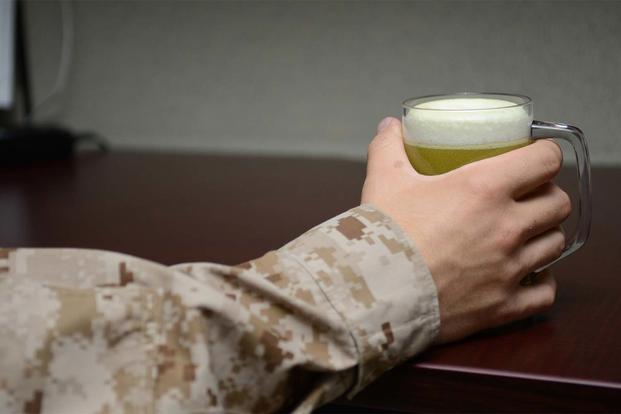The commandant of the Marine Corps is calling on his troops to 'drink less, read more and PT smarter' in a new message to the force.
Gen. Robert Neller's fragmentary order, or FRAGO, released Tuesday is the second he has issued since he stepped into his role in late 2015, and it comes accompanied by a list of 25 tasks for Marine commanders to improve training, rebuild infrastructure and develop the service's future operational strategy.
But his message to Marines is more personal.
Neller writes that 152 Marines died in 2016 -- nearly the equivalent of a rifle company. Only one of those deaths, that of Staff Sgt. Louis Cardin, was a result of combat action. Tragically, suicides accounted for 36 more. Others were caused by vehicle crashes and other accidents and "reckless behavior," Neller wrote.
"We are better than this," he wrote. "We must do a better job of looking out for each other."
In an interview with Military.com this month, Neller said he wanted to develop a greater awareness among Marines about the prevalence of these preventable deaths in the force.
"Most Marines in their unit, their battalion, their work section, they don't know. They just see the world through their soda straw," he said. "I'm trying to make everybody understand, 'Hey, look, you're part of something bigger than yourself, and we all have equity on this.' "
And a common denominator in Marines' risky behavior, as well as illegal and violent acts including domestic abuse, sexual assault and hazing, is the presence of alcohol, Neller said.
In his FRAGO, the general calls Marines' heavy drinking, tobacco use and poor eating habits "self abuse" that "plays into the hands of our enemies." Troops should also re-examine their physical fitness programs, he said, balancing cardio and weight exercises, and "put down the electronics, get off the couch" more often.
In tackling hard drinking among troops, Neller told Military.com he knows he is targeting what has long been an established element of Marine Corps culture. Marines love to recall that the service itself was born in a bar, established at Philadelphia's Tun Tavern in 1775.
"It's tough, because that's part of the culture," Neller said. "But the logic to me is, 'Hey look, you're a professional. You may go to war. Why would you want to do anything that would sub-optimize any bit of your performance?' "
Neller said he doesn't plan to tell troops how much they should drink or set any limits, but is asking them instead to examine their lives and ask if their habits are keeping them from being successful.
The commandant is also asking troops to read more, advising in the FRAGO that building a sharp mind is as challenging and labor-intensive as working up to 20 pullups.
He called on Marines to read at least five books from the Commandant's Professional Reading List and consider pursuing a higher education degree. One of his tasks for commanders develops the point further, calling on Marine Corps Combat Development Command to examine the possibility of developing a higher education plan for staff noncommissioned officers, allowing them to earn bachelor's or associate's degrees while on active duty.
Neller wrote that the Corps will also promote the use of the Career Intermission Program, an option to pause a military career to pursue other opportunities that has yet to gain popularity among Marines.
In the interview, Neller said the service is working with colleges local to major Marine Corps bases to get enlisted professional military education to count for degree credit, and to develop paths for troops to get their degrees.
"The Marines I've talked to are interested in advancing their education, whether that be officer or enlisted," he said. "And as part of a retention thing if nothing else, I think … it's good for us to facilitate that or encourage it. And when they're in, I think it's logical that they're going to be more effective in performing their duties as a Marine [with higher education]."
Neller's last order to Marines in the FRAGO: Have more fun, of the constructive variety. He wants troops to spend more time socializing and exploring their environment, rather than staying in the barracks during their down time. Learn to surf, he suggested, or take up a new language. And, he added, lean into the hardship that comes with tough Marine Corps training.
"Embrace the 'suck' and laugh about it with your fellow Marines," he wrote. "The hardships that we suffer together build cohesion. They will be the moments we remember the most after we hang up the uniform."
-- Hope Hodge Seck can be reached at hope.seck@military.com. Follow her on Twitter at @HopeSeck.





























